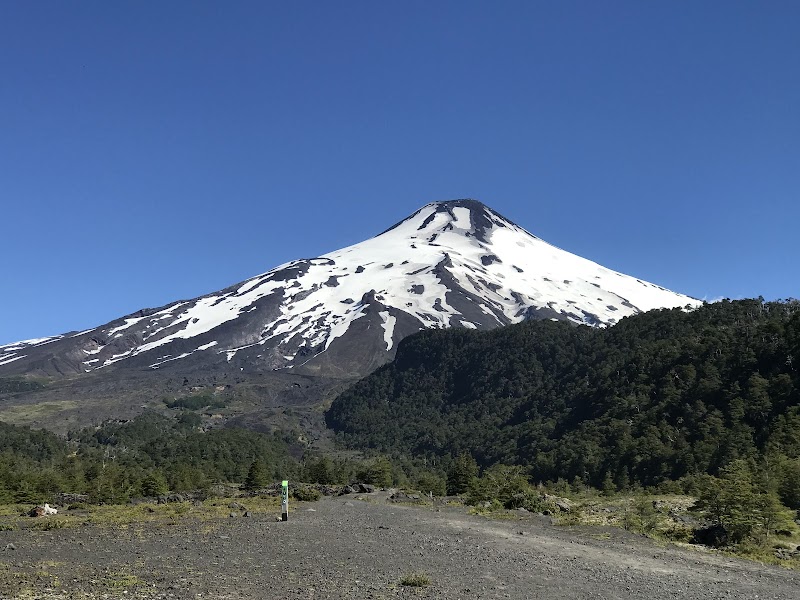
Parque Nacional Villarrica Adventures
Parque Nacional Villarrica is a protected area centered around the active Villarrica Volcano, offering exceptional opportunities for hiking, climbing, and observing volcanic landscapes and native Valdivian temperate rainforests.
About Parque Nacional Villarrica

Parque Nacional Villarrica is located in southern Chile and encompasses a diverse landscape dominated by the active Villarrica Volcano, one of Chile’s most renowned volcanoes standing at 2,847 meters (9,341 feet). The park expands across the regions of Araucanía and Los Ríos, preserving both volcanic terrain and extensive tracts of Valdivian temperate rainforest. This national park provides habitat for several native species including the pudú (world’s smallest deer), Andean condors, and the endangered Darwin’s fox in some parts. Volcanic lakes, hot springs, waterfalls, and dense forests make it a popular destination for outdoor enthusiasts. Visitors can enjoy hiking on well-maintained trails that climb through old-growth forests and volcanic slopes, mountain biking, fishing in clear mountain streams, and winter sports such as skiing and snowboarding at the nearby resorts on the volcano’s slopes. A highlight of the park is the challenging ascent to the summit of Villarrica Volcano, where climbers can observe an active lava lake and stunning panoramic views of the surrounding Andes and Chilean lake district. The park also protects cultural heritage sites relevant to the indigenous Mapuche people, whose history and traditions remain an integral part of the region. With established visitor facilities, including ranger stations and campgrounds, the park accommodates a wide range of outdoor activities year-round, attracting adventurers and nature lovers alike.
Highlights
Summit of Villarrica Volcano with active lava lake views
Valdivian temperate rainforest ecosystem with rare species
Huilo-Huilo waterfall and volcanic hot springs
Challenging multi-day trekking routes with scenic volcanic and forest landscapes
Notable Natural Features
Villarrica Volcano
An active stratovolcano offering summit climbs with views of lava activity and sweeping Andes vistas.
Valdivian Temperate Rainforest
A lush forest ecosystem featuring native tree species like coigüe and lenga, providing rich wildlife habitat.
Huilo-Huilo Falls
A picturesque waterfall within the park popular for day hikes and nature observation.
